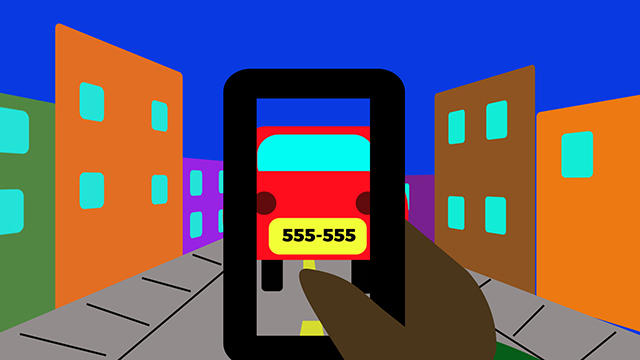PORTLAND, Ore. (KOIN) — It’s a little known fact that in Oregon, regular citizens can issue traffic tickets to motorists violating the rules of the road.
Most often, law enforcement take tips from citizens who report poor driving habits or violations from others and then police follow up with the problem driver.

“Oftentimes we are able to locate those vehicles, law enforcement is, and we’re able to establish our own reason to stop them, our own lawful reason to come in contact with those drivers who the citizens are complaining about. And we can take our own enforcement action based on our own observations,” Oregon State Police Lieutenant Steve Mitchell told KOIN 6 News. “The other way a citizen can do a complaint is actually file a citizen’s citation.”
Filing a citizen’s citation can take many steps, but it’s been more streamlined in recent years thanks to the internet and an update to the law. For instance, it is now not even necessary to take the complaint to a police office because a citizen can print a blank citation form directly from Oregon Judicial Department website.
If the complainant knows how to fill out the form correctly, they can sign it themselves as a police officer would and then file it directly to a local or state courthouse, Mitchell said.
However it can be tricky to get all of the information right because the form must include the alleged traffic violator’s name and address, the complainant’s name and address and the correct violation for which the complaint is being filed.
In addition, citizens who falsely report that a violation occurred could be liable for perjury or false swearing, Mitchell said.

For those who don’t know the personal information of a traffic violator, but still want to file a citizen’s citation, they will need at minimum the license plate number of the vehicle and physical description or photo of what the person looks like. With that information, along with the time and place of when the alleged traffic violation took place, local or state law enforcement can help assist to correctly fill out the form.
“Oftentimes people will take video of people, they may get them on their phone or something like that, whatever can help them identify. So that if they do go in, they can give the law enforcement information. Law enforcement can help facilitate the citizen being able to fill out the citation,” Mitchell said.
If a citizen doesn’t fill out the form correctly, or it’s incomplete, the citation could be set aside by the court upon motion of the defendant made before the entry of a plea.
If the citation gets successfully filed by the court, that would trigger the defendant receiving a summons with a court date, which may be delivered by an enforcement officer.
The complainant will receive notice of the court date, too. And it’s important that the person filing the citation actually show up to testify to the violation that occurred for it to actually go through.
“It would be the same as if a police officer didn’t show up. If I cited somebody for speeding citation and I did not appear at the court date and time, with the defendant, then that citation would more likely than not be dismissed by the court,” Mitchell said.

The officer described the citizen’s citation as “a good process.” But he pointed out that “a high percentage of the times” police are able to make appropriate law enforcement contacts based on a combination of citizens’ reporting and their own observations.
In addition, Mitchell emphasized that anyone taking photos of a problem driver should do so only when it is safe and when they are not behind the wheel driving themselves.
Mitchell also recommends dialing 9-11 if the problem driver is causing immediate danger to their surroundings or other people.
The Oregon Revised Statute 153.058 is the official name of the law that allows private people to file citations and it was updated in 2017. There are also processes for citizens to file citations for violations related to boating, wildlife, commercial fishing and unlicensed operation of commercial weighing or measuring instruments.